 News
News
 News
News
 News
News

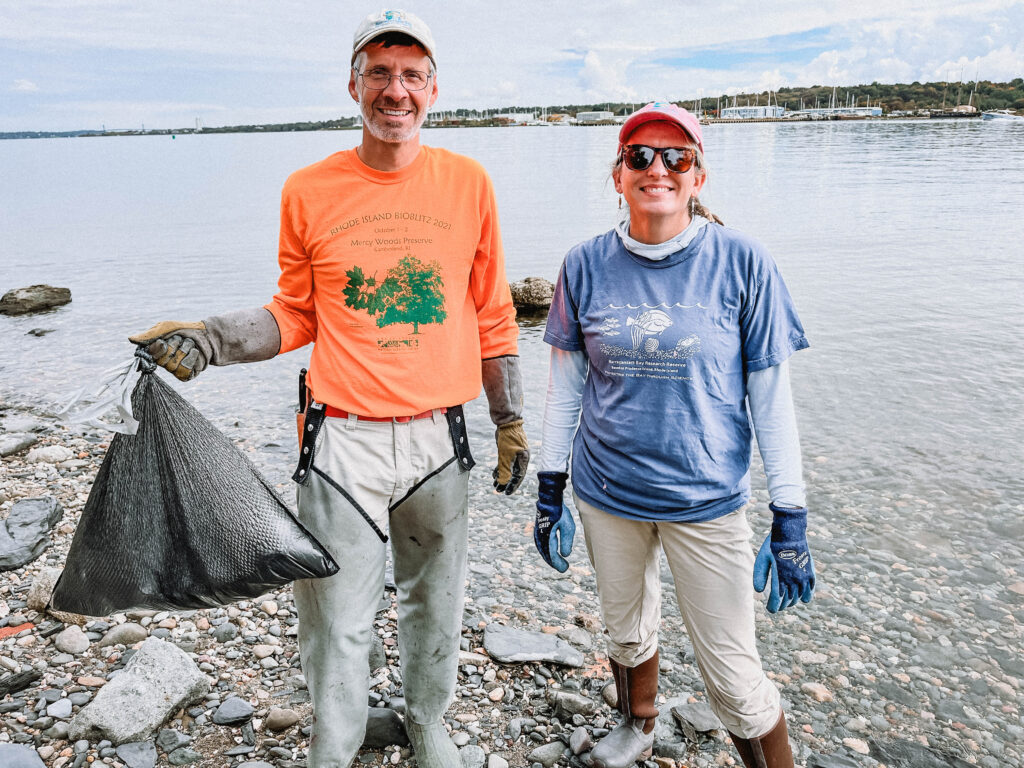
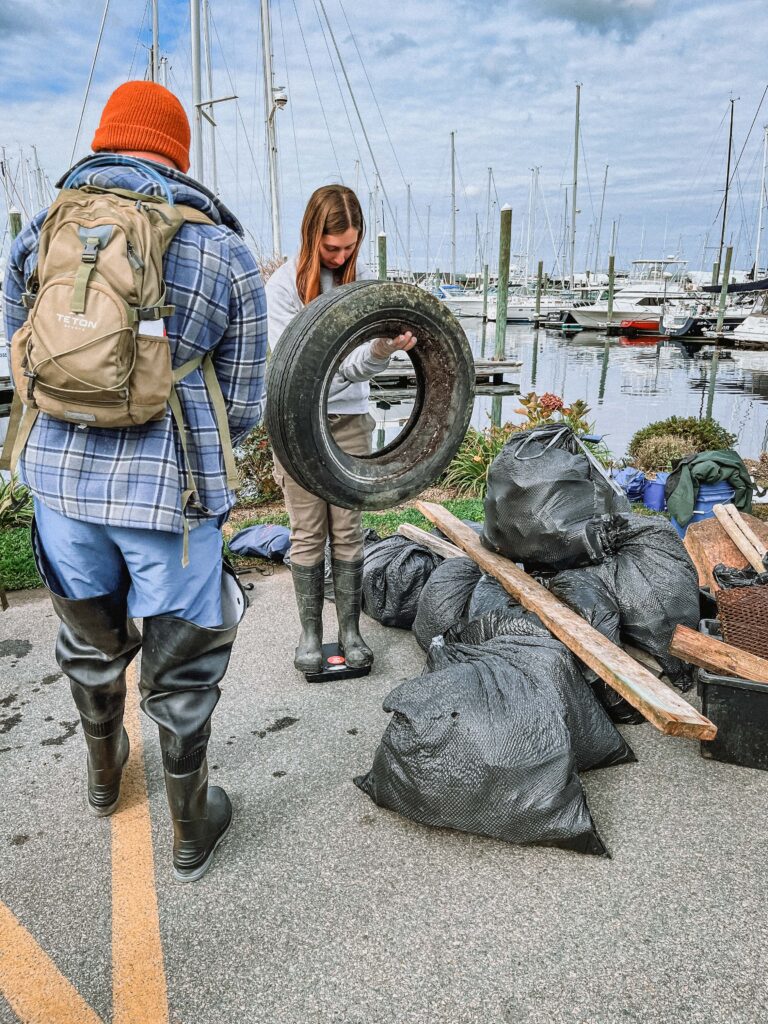
It’s beach cleanup season! We are grateful for our friends and the collaborative nature of @savethebayri, @ri.fishandwildlife, and @rhodeisland.dem for their help in cleaning up debris on two of the Reserve’s islands… Patience and Dyer. We couldn’t do it without you! In total, 440 pounds of trash were removed from Patience by 24 volunteers and another 440 pounds were removed off Dyer by 22 volunteers.
 News
News
The Department of Environmental Management (DEM) today is announcing a strategy of increasing the use of low-severity prescribed burns in several areas of Rhode Island to reduce the buildup of combustible materials minimizing the risk of high-severity, unplanned, destructive wildfires. In 2022, which was marked by severe drought that the state only now is recovering from, RI experience more than 80 wildland fires. Parched conditions forced DEM to ban outdoor fires at all state campgrounds, parks, and management areas for a two-week period in August.
Prescribed, or planned, burning is a versatile tool that natural resources managers use for maintaining habitat and plant diversity. Along with protecting human communities from extreme fires by reducing hazardous natural fuels, the right fire at the right place and right time help to:
o Remove invasive and unwanted plant species that threaten ecosystems
o Slow the spread of pest insects and disease
o Restore native ecosystems such as pitch pine barrens, pine-oak woodlands, and maritime grasslands and shrublands
o Promote the growth of native warm season grasses and wildflowers to diversify pollinator habitats
o Recycle essential nutrients back into the soil, and
o Train municipal and wildland firefighters in the methods and techniques of suppressing wildfires
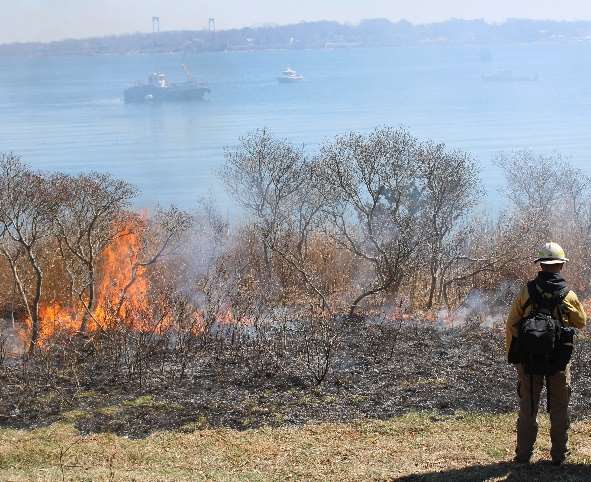
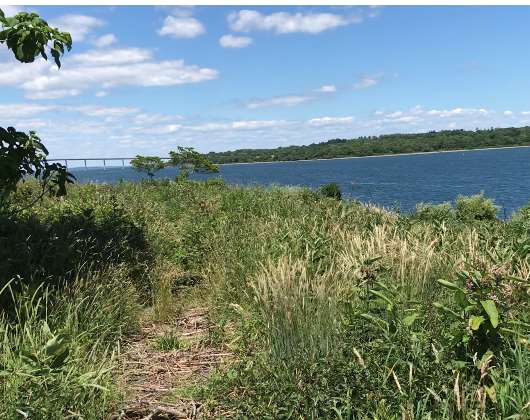
Since DEM conducted a prescribed burn on Dutch Island in March 2022 (left), native grasses and milkweeds favored by pollinators (right) have replaced the tangle of invasive plants — such as autumn olive, honeysuckle, and bittersweet — that once dominated the habitat.
DEM has burn plans in place for four areas starting this spring and stretching into the fall:
o Dutch Island, Jamestown, where DEM conducted its last prescribed burn in March 2022
o Nicholas Farm Management Area, Coventry
o Pratt Farm, Arcadia Management Area, Exeter
o Prudence Island, Portsmouth
“Prescribed fire is an important land management practice DEM uses to restore degraded forestlands, promote diverse wildlife habitats, and remove hazardous fuels to protect rural communities from wildfires,” said DEM Forest Fire Program Manager Pat MacMeekin. “We are working to return fire to the landscape where appropriate, to improve Rhode Island’s ecological systems and increase public safety.”
By increasing its use of prescribed fire, Rhode Island will be better aligning its land management policies and practices with neighboring states. From 2018 to 2022, Massachusetts ignited 223 prescribed fires totaling 7,148 acres and Connecticut had 18 prescribed fires totaling 300 acres. In the same five-year period, Rhode Island conducted three prescribed fires totaling around 75 acres. Among other benefits, common ecological restoration goals with other states help to strengthen climate change resilience across southern New England. More planned, prescribed fires mean fewer unplanned, extreme wildfires Specialists write burn plans for prescribed fires. Burn plans identify – or prescribe – the best conditions under which trees and other plants will burn to get the best results safely. Burn plans consider temperature, humidity, wind, moisture of the vegetation, and conditions for the dispersal of smoke. Prescribed fire specialists compare conditions on the ground to those outlined in burn plans before deciding whether to burn on a given day. If the weather is too hot, too dry, or the winds are too strong, prescribed fire operations are postponed until the weather is more moderate. The approved weather conditions are predetermined in the prescribed fire plan for a property and are specific to the intent of the prescribed fire and the property location.
“DEM’s main concerns in conducting prescribed burns are human safety, protection of built infrastructure, and protection of sensitive resources, especially if fire has been absent from an ecological area for many years,” said Chief of Agriculture and Forest Environment Ken Ayars. “DEM personnel who are trained in the use of prescribed fire, along with local fire departments, will oversee the prescribed fire. As we did with our last prescribed burn on Dutch Island last March, DEM will begin public outreach and notification efforts around 30 to 45 days before our first burn in 2023, again about a week before the event, and then again a day or two before the burn when a reliable burn window can be established based on weather and wind conditions.”
Experts from DEM’s Forest Fire Program, a subsidiary of the Division of Agriculture and Forest Environment, will lead the prescribed burns. They will employ detailed operational and safety plans. Planning is critical for every burn. A prescribed burn plan developed by a qualified burn boss must be in place before a burn is conducted. Firebreaks and other site preparations are made. Fire behavior, fuels, and weather are monitored throughout the burn, and if the prescription parameters are exceeded, the fire is shut down.
Beforehand, a permit is required from the town fire chief and an exemption from state air pollution control regulation Part 4: Open Fires (250-RICR-120-05-4) is required from the DEM Office of Air Resources. The burn is carried out by a skilled crew under the direction of a qualified burn boss. Abutting landowners are notified of fire dates, reasons, and expectations for the burn season. For more information on DEM programs and initiatives, visit www.dem.ri.gov. Follow DEM on Facebook, Twitter (@RhodeIslandDEM), or Instagram (@rhodeisland.dem) for timely updates.
 News
News
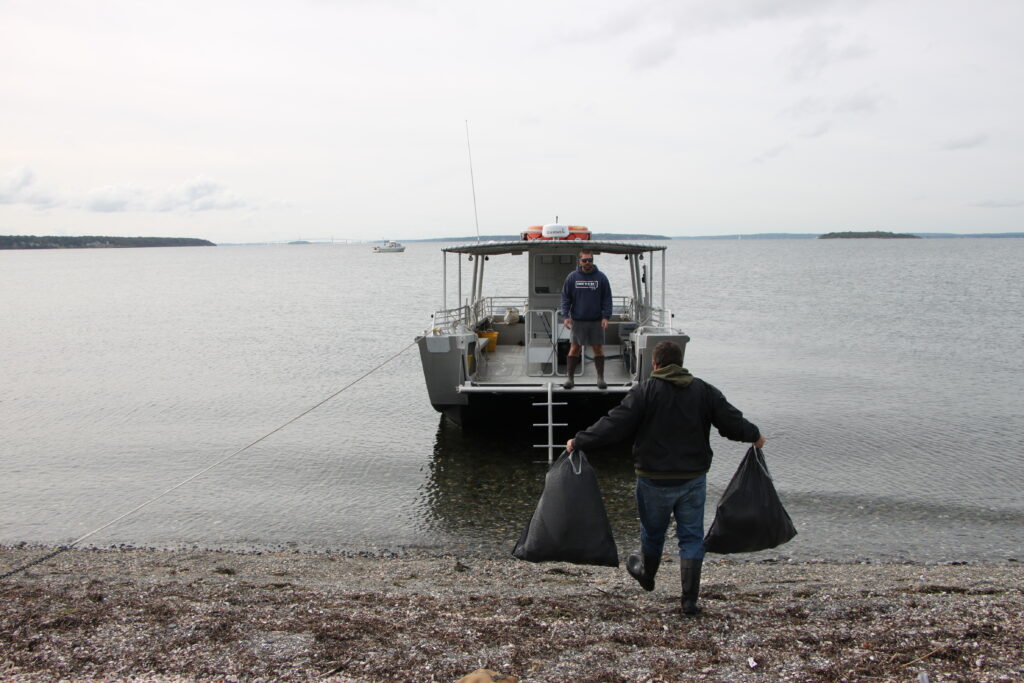
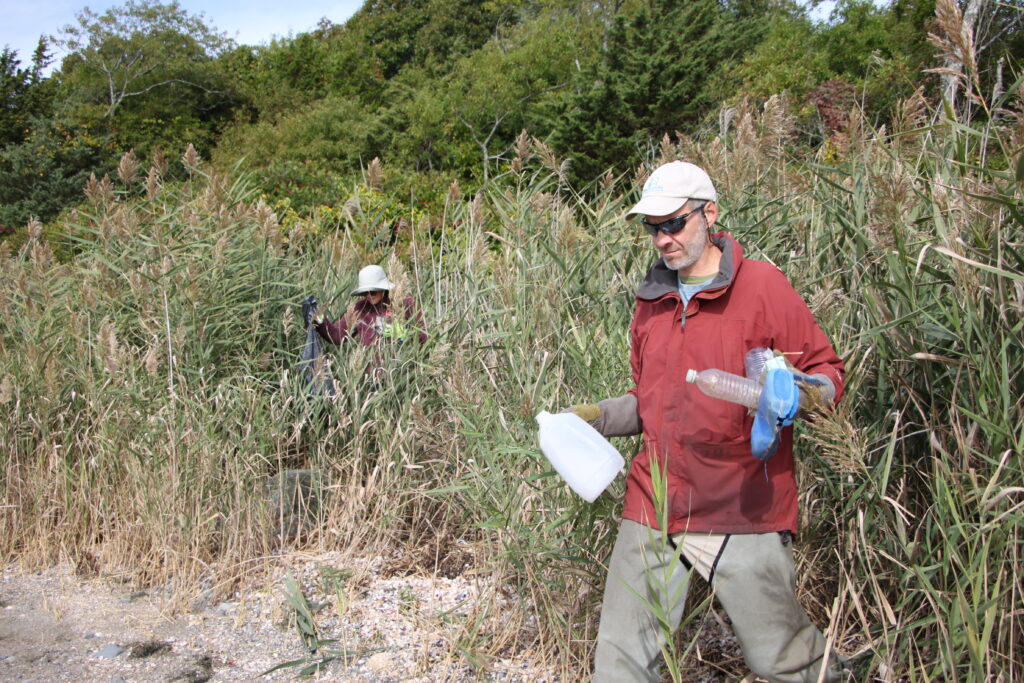
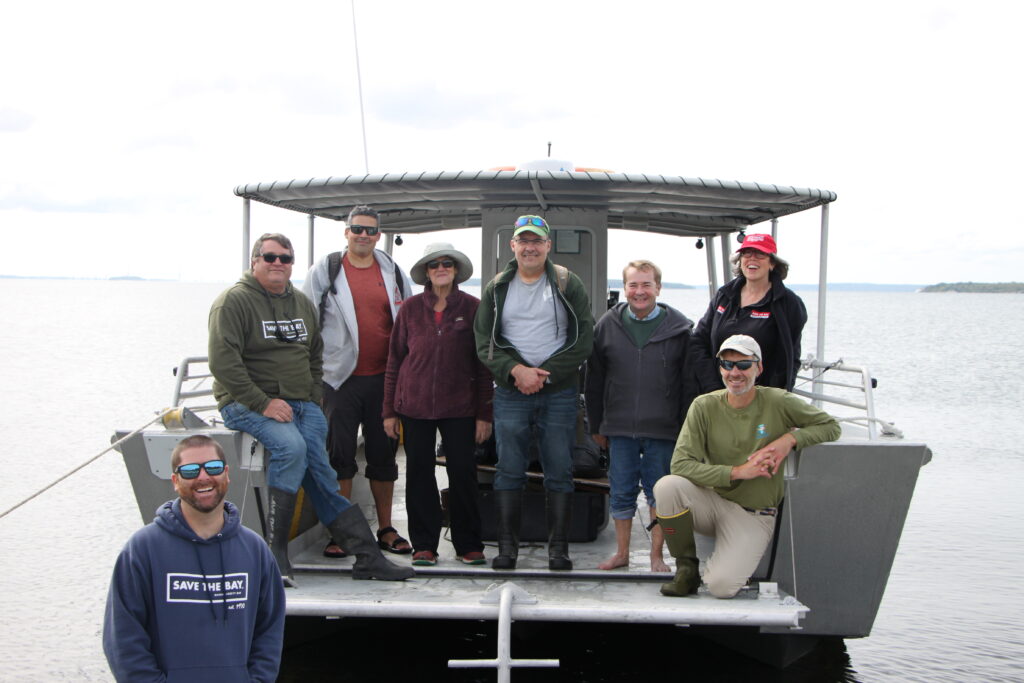
Last Friday (9/30) was another coastal clean-up organized through Save The Bay. Volunteers arrived via STB landing craft Rosemary Quinn to collect and remove trash from a section of Prudence Island coastline. Thanks for helping to clean up the Bay!
If you are interested in joining an organized cleanup you can join Save the Bay and NBNERR next week. Visit volunteer.savebay.org and sign up for a cleanup. Or contact Maureen DeWire for the NBNERR cleanup Sunday (10/9).
 News
News
It is with heavy hearts that we announce the loss of our beloved leader and friend. Bob leaves a legacy filled with people, creatures and places that he made better through his influence. The Reserve fosters resilient estuaries and watersheds, and we were fortunate to have Bob with us furthering that critical mission by promoting scientific research, education, training, and restoration, conservation and stewardship. Bob had a special combination of qualities; he was passionate and logical, fierce and gentle, dogged and creative. In addition to being an extraordinary leader of the Reserve for over 15 years, Bob was a cherished friend and an overall wonderful person.
